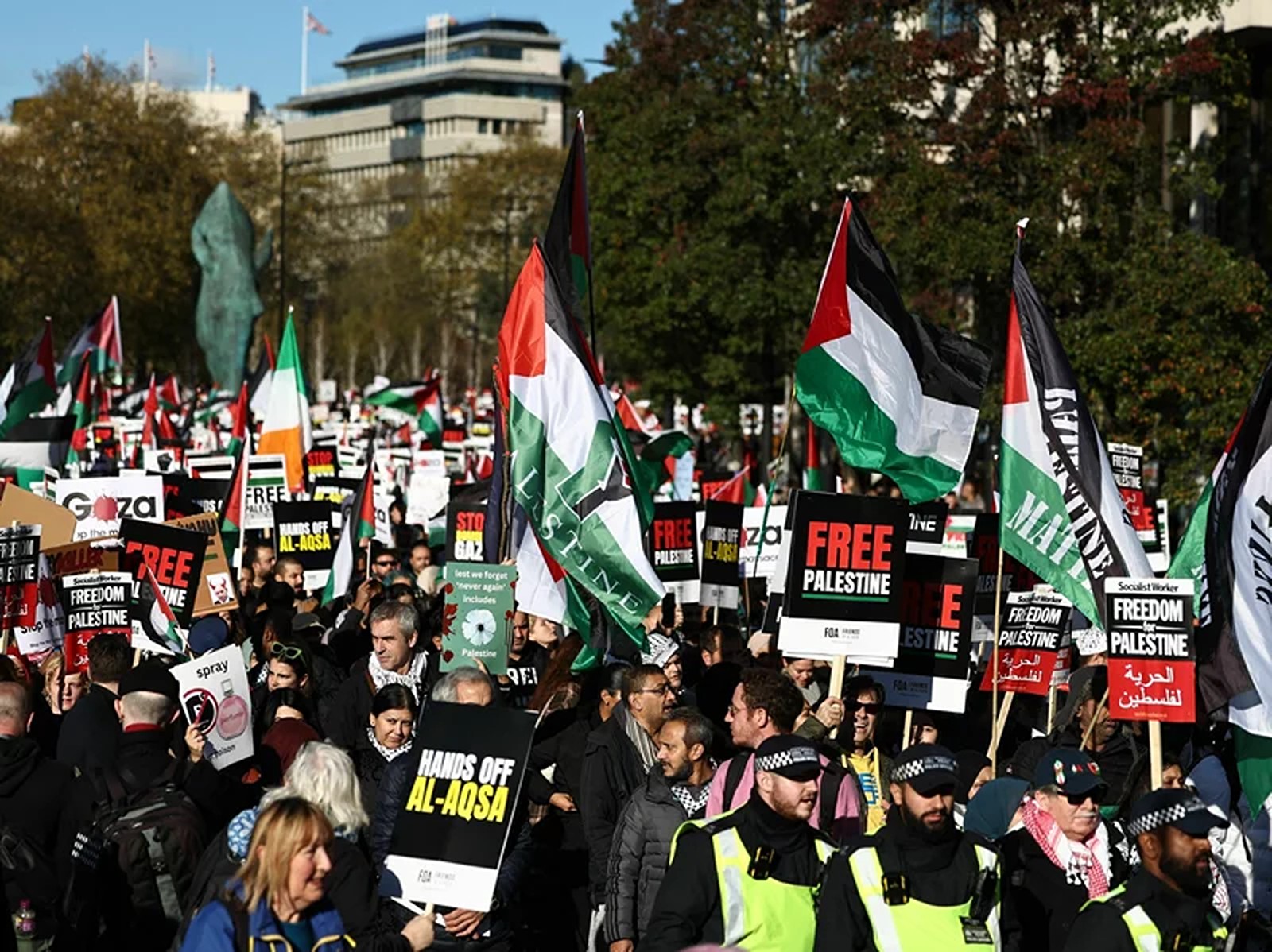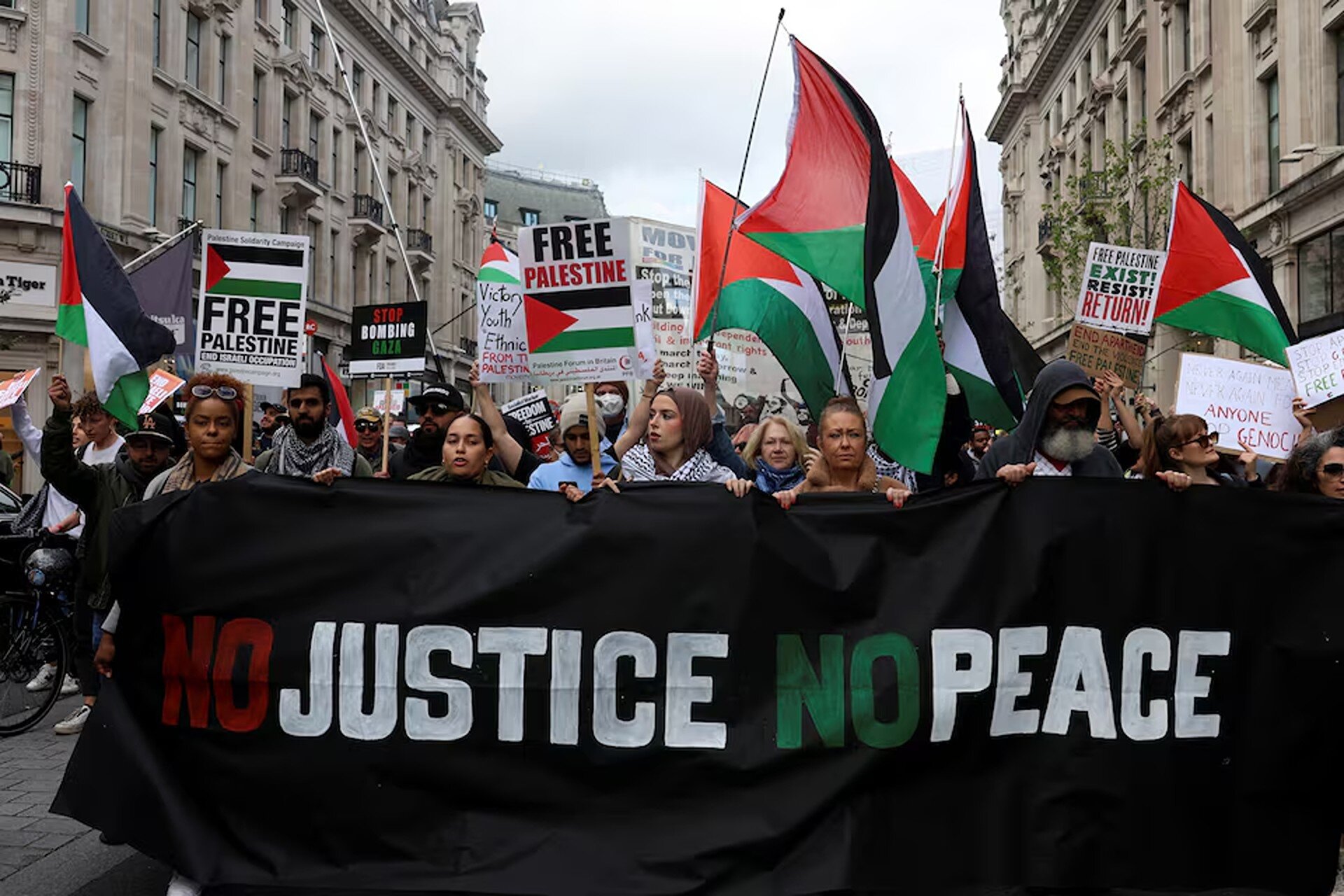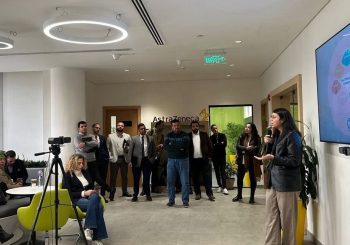Do Palestinians have the chance to mourn? But more importantly, are they granted the right to mourn? Not only to mourn their losses, but to mourn with a purpose; to channel mourning towards justice and action.
At a time when Palestinians are experiencing unprecedented levels of intense and profound loss — the CBC previously reported that Israel’s bombing campaign on Gaza is the most destructive of this century — their capacity to grieve collectively and without condemnation has been consistently curtailed.
As Palestinian researcher and professor Devin G. Atallah writes, Palestinians struggle to find space for personal grief, as the need to move forward forces them to focus on survival. After all, how can people mourn in a space of constant horror?
From the grief of the 1948 Deir Yassin massacre to the ongoing Gaza war, grief stretches endlessly across time and history. Before they can fully process one loss, another tragedy rises above it. “We cannot grieve our dead. We are obligated to steal our present to fight for our future,” Atallah articulates poignantly.
Yet, grief can also act. Palestinians have channeled their grief into organizing and finding meaning, transforming it from a private experience into a powerful form of collective action. Grief has become no longer merely an emotion, but a proactive form of resistance in its own right.
Processing Grief
“Do we mourn, or do we not?”
This question lingered in Faisal Abuzour’s mind for a long time after he lost contact with his grandmother and aunt in Gaza.
Swept away in a torrent of news and tragedies, he could not fully absorb the enormity of losing them, let alone begin to heal. Even today, he battles the unresolved pain, and the gaping hole their loss left behind.
“My grandmother was 94 years old and had dementia. She relied on my aunt, who was the backbone of our family,” said Abuzour, a 26-year-old Palestinian living in Manchester, speaking to Egyptian Streets. “These are the people being targeted by the IDF.”
Abuzour has never experienced such mental strain before. Witnessing the suffering in his community alongside the normalcy and indifference online has deepened his anger and confusion about the world’s double standards.
He sees a world seemingly desensitized, where the pain of others feels diluted by a constant stream of updates.
“I’m always wondering how people can go about their lives as if nothing is happening. It makes me angry at the world,” he says. “This is the most documented genocide in history, yet the world remains idle, watching.”
Palestinian scholar and graduate assistant Nader Dagher, who is presently residing in the US, also shares his frustrations the international community’s reaction to the events in Ukraine in contrast to Palestine.
“We have seen the world react strongly to the war in Ukraine, but when it comes to Palestine, blood is worth nothing. The killing of tens of thousands of people does not prompt governments to take action to stop it,” Dagher says. “I think it is pathetic that these lost lives mean so little to them.”
Living abroad as Palestinians, both Abuzour and Dagher remain deeply connected to their families and friends back home. Gaza is not merely a topic, headline, or social media post for them — it has become the guiding force in their daily existence. Their lives now revolve around it.
“For the past seven months, we haven’t experienced any joy. We don’t even laugh; we’re constantly glued to the news, thinking about people we know in Gaza,” Dagher explains. “Our daily conversations revolve around Gaza and the updates we receive from there.”
For Abuzour, every morning is filled with constant anxiety and stress as he waits for news about the safety of his family and friends. “Each day, we wake up anxiously awaiting news that another person we know may have been lost,” he shares.
He has been in touch with locals on the ground who provide firsthand accounts of the war. “I’ve spoken to them about whether they’re really targeting specific Hamas bases, and they’ve all said no. They’re just bombing anything and everything they come across.”
Channeling Grief into Action

Understanding how grief can drive action can be challenging, but scholars like Malkia Devich-Cyril, an activist, writer, and researcher focusing on the grief of African Americans, argues that grief-informed social movements acknowledge the generational pain in these communities.
While grief is not typically measured by experts or official organizations, there is growing interest in how this emotion alone shapes how people react and behave in society. Grief can influence whether people participate in protests, how they respond to calls to action, and their ability to organize into a wider social movement.
“Grief is one of those cultural phenomena that shapes how and whether we participate,” Devich-Cyril says. “This work can reveal the systemic nature of disproportionate loss. If we can understand how reactionary grief can limit our leadership, we can understand how a radical version of grief can strengthen it.”
There is a kind of grief that can be paralyzing. It can leave us feeling so depleted that we choose to withdraw and turn inwards, and turn towards our private spaces, rather than towards our communities.
But there is also another form of grief that transcends the individual, and instead, is a collective experience, shared and felt by many at once. This shared pain can be a powerful catalyst, inspiring connection and the organization of movements fueled by a common experience of loss.
Nouri Gana, a Tunisian academic and researcher, explores the concept of melancholy as a source of resistance in his book “Melancholy Acts: Defeat and Cultural Critique in the Arab World” (2023). Melancholy, according to Gana, doesn’t simply express loss; it becomes a claim, a way to express grievance.
This, in turn, becomes a vital element in the emotional and psychological foundation of resistance movements.
The Palestinian diaspora has significantly contributed by channeling their grief into purposeful mourning and directing their efforts towards positive actions that bolster the broader Palestinian cause.
Despite residing far from Palestine, they actively participate in state-building and the establishment of a Palestinian state, contributing through activism, financial support, or community engagement.
Living in Manchester, Abuzour has been directly involved in Palestinian activism. “My community in Manchester have been doing a lot for Gaza. And this is one of the reasons why I love this great city,” he adds.
Every Saturday in Manchester, a protest occurs featuring speeches addressing ongoing atrocities, alongside market stalls where all proceeds benefit Gaza. Midweek protests also target companies funding these actions, significantly raising awareness among those previously unaware of the genocide.
“Almost every mosque I have been to have been doing fundraisers after Jumaa prayers for Palestine. A lot of restaurants and takeaways have stopped selling products that are on the boycott list. ” Abuzour says. “Some of these restaurants have also put the Palestinian flag up in their shops to show their support.”
Grassroots activism is also evident on Wilmslow Road in Manchester, where Palestinian flags adorn nearly every lamp post, symbolizing community support and solidarity. “It’s little things like this that help raise awareness and support for Gaza.”
Palestinian residents in the UK have also been mobilizing through local political events. They’ve hosted frequent dinners and social events to raise awareness and support for their cause. “I participated in a well-attended Ramadan dinner,” Abuzour says.
“It featured prominent figures like Manchester’s mayor, Andy Burnham, and Palestinian ambassador Husam Zomlot, alongside other British Members of Parliament. This event provided a platform for attendees to connect with these officials and share their personal experiences of the conflict.”
Where there is grief, there is also resistance. Where there is suffering, there is also community and strength. Over time, the Palestinian diaspora has discovered how to wield their emotions as both shields and weapons, harnessing the enduring pain of their ancestors as motivation for their present and future.
“We in the diaspora will not be silenced anymore,” Dagher says. “We will fight until Palestine is free.”







Comment (1)
[…] post Grieving with Purpose: How Palestinians Overseas Drive Change first appeared on Egyptian […]